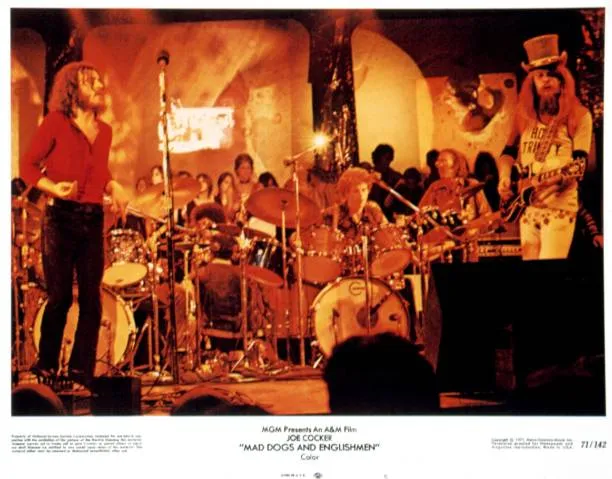"Watching the Wheels" is a song that stands out in John Lennon’s catalog, not only for its melodic simplicity and introspective lyrics but also for the poignant timing of its release. This single, which was released posthumously in 1981, became one of the most iconic songs in Lennon’s solo career. It serves as both a reflection of his personal journey during his five-year hiatus from music and a philosophical statement on the nature of life and fame. After his tragic death in December 1980, "Watching the Wheels" became a powerful reminder of Lennon’s enduring legacy and the introspective wisdom he left behind.
A Return to the Simple Life

In 1975, John Lennon made a decision that shocked the world. At the height of his solo career, he chose to step away from the music industry and retreat into a more private, domestic life.
After years of intense public scrutiny, pressure from fame, and his own personal struggles, Lennon longed for a simpler existence. He wanted to focus on his family, particularly his young son, Sean, whom he had with Yoko Ono. For the next five years, Lennon embraced a life of relative anonymity, dedicating himself to being a husband and father.

During this period, Lennon became, as he later described it, “just watching the wheels.” He spent his days caring for Sean, baking bread, and enjoying the quiet moments that fame had often denied him. For many, this was a confusing choice.
Why would one of the most influential musicians in the world walk away from the spotlight? But for Lennon, it was a necessary break, a chance to rediscover himself outside of the public eye.
Writing “Watching the Wheels”

The song "Watching the Wheels" emerged from this period of reflection and self-discovery. As Lennon began to return to music in 1980, he penned this song as part of his "Double Fantasy" album, a collaboration with Yoko Ono that marked his re-entry into the music world. "
Watching the Wheels" was one of the most personal tracks on the album, offering insight into Lennon’s mindset during his years away from the industry.
The lyrics of "Watching the Wheels" are both straightforward and profound. Lennon describes the reactions of others to his decision to step back from fame:
"People say I'm crazy, doing what I'm doing
Well, they give me all kinds of warnings to save me from ruin."
Through these lines, Lennon acknowledges the confusion and concern of those around him. He was often questioned about his choice to leave the music scene, with many seeing it as a waste of his immense talent. But Lennon, in his characteristic way, responded not with defensiveness, but with a calm assertion of his contentment:
"I'm just sitting here watching the wheels go round and round
I really love to watch them roll."
These lyrics capture Lennon’s sense of peace and satisfaction with his life as it was. He found joy in the simple, everyday experiences that many take for granted.
For Lennon, this was a period of re-centering, where he could appreciate life’s ordinary moments without the pressures of his previous existence.
A Posthumous Release and Its Impact

Tragically, John Lennon would not live to see the full impact of "Watching the Wheels." On December 8, 1980, Lennon was murdered outside his New York City apartment, just weeks after the release of "Double Fantasy."
His death shocked the world and left fans and fellow musicians in deep mourning. The loss of such an iconic figure, particularly as he was re-emerging into the public eye, was devastating.
In 1981, "Watching the Wheels" was released as a single, and it quickly became one of Lennon’s most beloved songs. The timing of its release added a layer of poignancy to the track. In the wake of Lennon’s death, the lyrics took on new meaning for listeners.
The song was no longer just about a man content with his life away from fame; it became a testament to Lennon’s philosophy on life and his ability to find peace in the midst of chaos.
The reception of "Watching the Wheels" was overwhelmingly positive. It resonated with fans who were grappling with the loss of Lennon, offering them a sense of connection to the man behind the music.
The song climbed the charts, reaching number 10 on the Billboard Hot 100, and it remains one of Lennon’s most enduring hits. Its simple, yet profound message has continued to resonate with listeners for decades.
The Philosophical Undertones

"Watching the Wheels" is more than just a reflection on Lennon’s hiatus; it is also a philosophical exploration of life’s deeper meanings.
The song touches on themes of contentment, the passage of time, and the pursuit of happiness. Lennon’s choice to step back from fame can be seen as a rejection of society’s expectations and a declaration of his own values.
In the line, "No longer riding on the merry-go-round," Lennon metaphorically addresses the cyclical nature of fame and the pressures that come with it. He compares the entertainment industry to a merry-go-round, where artists are expected to continuously perform, produce, and stay relevant.
By stepping off this ride, Lennon chose to live life on his own terms, finding fulfillment in simplicity rather than in the relentless pursuit of success.
This philosophical stance is one that many have admired and emulated. In a world that often equates worth with productivity and achievement, Lennon’s decision to prioritize his personal well-being over his public persona was a radical act. "Watching the Wheels" encapsulates this mindset, encouraging listeners to find their own sense of peace and contentment, regardless of societal pressures.
Legacy and Continuing Influence

Over the years, "Watching the Wheels" has become a song that is deeply associated with John Lennon’s legacy. It is often cited as one of the most introspective and honest songs in his solo career, offering a window into his inner world during his final years. The track has been covered by numerous artists, and its lyrics have been quoted in various contexts, from academic discussions to popular culture.
The enduring appeal of "Watching the Wheels" lies in its universal message. While it is rooted in Lennon’s personal experiences, the themes it explores are ones that resonate with many people. The song speaks to anyone who has ever felt the need to step back, take a breath, and reassess what truly matters in life.
In the years since its release, "Watching the Wheels" has continued to inspire new generations of listeners. Its simplicity, both in terms of melody and message, makes it accessible to a wide audience. At the same time, its depth of meaning ensures that it remains a song that can be returned to time and time again, each listen revealing new layers of insight.
A Timeless Reflection

"Watching the Wheels" is more than just a song; it is a reflection of John Lennon’s journey, both as an artist and as a human being. In its lyrics, we find a man who had come to terms with his life, who had found peace in the ordinary, and who was unafraid to walk away from the spotlight to find himself. The posthumous release of the song added a layer of poignancy that only deepened its impact, making it one of Lennon’s most cherished works.
As we listen to "Watching the Wheels" today, we are reminded not only of Lennon’s genius but also of his humanity. The song encourages us to find our own balance in life, to appreciate the simple moments, and to live authentically. In a world that often feels like a never-ending merry-go-round, Lennon’s words offer a reminder that sometimes, it’s okay to just sit back and watch the wheels go round.
With "Watching the Wheels," John Lennon left us with a timeless piece of art that continues to inspire, comfort, and challenge us to think about the true meaning of contentment and the value of a life well-lived.



